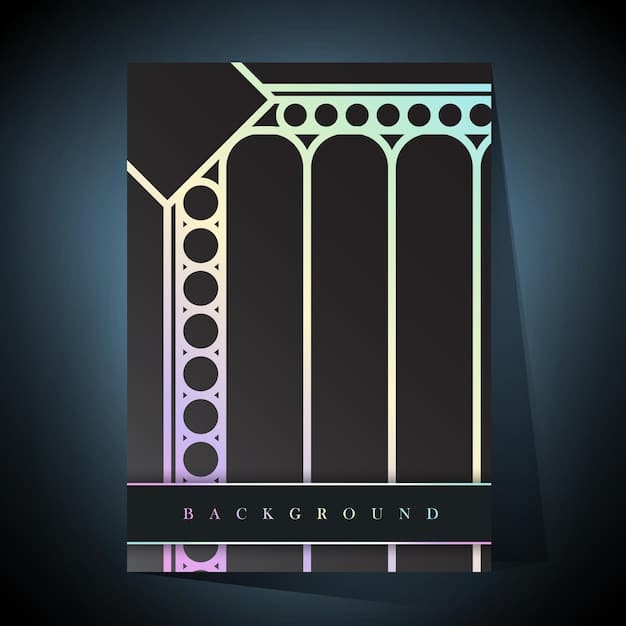Brazilian Film Adaptations: A Spoiler-Free Guide to the Big Screen

Brazilian film adaptations bring beloved literature to life, offering unique cinematic perspectives on stories cherished by Brazilian culture, while staying true to the original works for an authentic viewing experience.
Embark on a spoiler-free journey through the captivating world of Brazilian film adaptations, where classic literature meets the magic of cinema. Discover how Brazilian filmmakers have masterfully translated iconic stories from page to screen, providing a unique and enriching viewing experience for all.
Exploring the Rich History of Brazilian Film Adaptations
The world of Brazilian cinema has often turned to literature for inspiration, resulting in a fascinating array of film adaptations. These adaptations not only showcase the richness of Brazilian storytelling but also demonstrate the talent of Brazilian filmmakers in bringing these stories to life on the big screen.
Early Influences and Adaptations
The early days of Brazilian cinema saw filmmakers drawing heavily from established literary works. This provided a foundation for the industry and helped to shape the narrative style that would become characteristic of Brazilian films.
The Rise of Cinema Novo and Literary Themes
The Cinema Novo movement further solidified the connection between literature and film in Brazil. Directors used literary themes to explore social and political issues, creating powerful and thought-provoking movies.
- ‘Vidas Secas’ (Barren Lives): Adapted from Graciliano Ramos’ novel, it depicts the harsh realities of life in the drought-stricken Sertão region.
- ‘Dona Flor e Seus Dois Maridos’ (Dona Flor and Her Two Husbands): Based on Jorge Amado’s novel, this film explores themes of love, desire, and Brazilian culture.
- ‘Macunaíma’: Inspired by Mário de Andrade’s modernist novel, this film offers a satirical and surreal look at Brazilian identity.
Brazilian film adaptations have played a crucial role in shaping the nation’s cinematic identity. By exploring literary works, filmmakers have been able to create movies that resonate with audiences and reflect the country’s unique cultural landscape.
Iconic Brazilian Novels Adapted for the Big Screen
Several iconic Brazilian novels have found new life through cinematic adaptations, captivating audiences with their engaging stories and memorable characters. These films have managed to capture the essence of the original novels, offering a visual interpretation that stays true to the literary source.

‘Dona Flor and Her Two Husbands’ (Dona Flor e Seus Dois Maridos)
Based on Jorge Amado’s novel, this film tells the story of Dona Flor, a woman torn between her passion for her deceased husband and her practicality with her new one. This adaptation is celebrated for its accurate portrayal of Bahia’s culture and the complexities of love and desire.
‘Central Station’ (Central do Brasil)
Though not a direct adaptation, this film shares thematic similarities with literary works exploring human connection and redemption. It follows a jaded woman who helps a young boy find his father, showcasing the beauty of human relationships in unexpected places.
- Faithfulness to the Source Material
- Outstanding Performances by the Cast
- Visual Storytelling that Enhances the Narrative
These adaptations offer a different perspective on well-loved stories, enhancing their impact and ensuring their continued relevance. They serve as a testament to the enduring power of Brazilian literature and its ability to inspire cinematic creativity.
Directors Who Excel at Literary Adaptations
Certain Brazilian directors have distinguished themselves through their exceptional ability to adapt literary works for the screen. Their skill in translating the written word into visual narratives has resulted in some of the most celebrated and impactful films in Brazilian cinema.
Nelson Pereira dos Santos: A Pioneer of Adaptation
Nelson Pereira dos Santos is a key figure in Brazilian cinema, known for his adaptations of classic Brazilian novels. His film ‘Vidas Secas’ is a prime example of his ability to capture the stark realities of Brazilian life, staying true to the source material.
Walter Salles: Bringing Contemporary Literature to Life
Walter Salles has successfully adapted contemporary Brazilian literature, bringing modern stories and themes to the big screen. His work often explores themes of identity, displacement, and the human condition.

These directors have not only adapted literary works but have also elevated them, creating films that stand as important cultural artifacts. Their dedication to preserving the essence of the original stories while adding their unique cinematic vision has made them masters of the adaptation genre.
Staying True to the Source Material: Challenges and Triumphs
Adapting a novel for the screen is a delicate balancing act. Filmmakers must stay true to the original source material while also making choices that work within the cinematic medium. This involves addressing various challenges and celebrating the triumphs of a successful adaptation.
Maintaining the Essence of the Story
One of the biggest challenges is maintaining the essence of the story while making necessary changes for the screen. This requires a deep understanding of the original novel and a careful approach to adaptation.
- Character Development: Ensuring that the characters remain true to their literary counterparts, capturing their nuances and motivations.
- Pacing and Structure: Adjusting the pacing and structure of the story to suit the cinematic format, without losing the core narrative.
- Visual Representation: Creating a visual representation that aligns with the tone and atmosphere of the original novel.
The triumphs of a successful adaptation often lie in the film’s ability to enrich the original story, adding new layers of meaning and interpretation. A well-executed adaptation can bring a beloved novel to a wider audience, ensuring its continued relevance and appreciation.
Spoiler-Free Recommendations for Film Adaptation Newcomers
For those new to the world of Brazilian film adaptations, there are several excellent movies to start with. These films offer a great introduction to the genre, showcasing the talent of Brazilian filmmakers and the richness of Brazilian literature.
‘O Auto da Compadecida’ (A Dog’s Will): A Lighthearted Adaptation
This comedy-drama, based on Ariano Suassuna’s play, follows the adventures of two poor tricksters in the Brazilian Northeast. Its charming characters and witty dialogue make it a delightful introduction to Brazilian film adaptations.
‘Two Sons of Francisco’ (2 Filhos de Francisco): A Biographical Drama
This film tells the true story of a famous Brazilian musical duo, showcasing their struggles and triumphs. Its emotional depth and compelling narrative make it a moving and engaging watch.
Starting with these films will provide a solid foundation for exploring the wider world of Brazilian film adaptations. Each offers a unique perspective on Brazilian culture, history, and storytelling, making them essential viewing for any film enthusiast.
The Future of Brazilian Film Adaptations
The future of Brazilian film adaptations looks bright, with new projects and talents emerging to continue this rich tradition. As Brazilian cinema continues to evolve, the adaptation of literary works will undoubtedly remain a significant part of its identity.
Embracing Modern Literary Works
Future adaptations are likely to embrace modern literary works, exploring contemporary themes and issues. This will allow Brazilian filmmakers to engage with current social and political landscapes, creating films that resonate with today’s audiences.
- Innovative Storytelling Techniques: Exploring new ways to adapt literary works, using techniques such as animation and virtual reality.
- Collaborations with International Talent: Partnering with international filmmakers and actors to bring Brazilian stories to a global audience.
- Focus on Diverse Voices and Perspectives: Adapting works that highlight the experiences of marginalized communities, promoting inclusivity and diversity.
The ongoing dialogue between literature and film in Brazil will continue to shape the country’s cultural narrative. By embracing innovation and diversity, Brazilian film adaptations will remain a vibrant and essential part of the cinematic landscape.
| Key Element | Brief Description |
|---|---|
| 🎬 Classic Novels | Adaptations of iconic Brazilian literature for the big screen. |
| 🇧🇷 Cinema Novo | Influence of Cinema Novo on literary-themed Brazilian films. |
| 🎥 Directors | Notable directors known for adapting literature into films. |
| ⭐ Recommendations | Suggested Brazilian film adaptations for newcomers. |
Frequently Asked Questions
▼
Some of the most famous Brazilian film adaptations include ‘Dona Flor and Her Two Husbands,’ ‘Vidas Secas’ (Barren Lives), and ‘O Auto da Compadecida’ (A Dog’s Will). These films have been celebrated for their cultural significance and artistic merit.
▼
The level of faithfulness varies from film to film. Some adaptations stay very true to the original source material, while others take more creative liberties to suit the cinematic medium, while preserving the core essence of the story.
▼
Brazilian film adaptations are unique due to their ability to capture the essence of Brazilian culture and society. They often explore themes of identity, social inequality, and the human condition, providing a distinct cultural lens.
▼
Nelson Pereira dos Santos and Walter Salles are two prominent Brazilian directors known for their adaptations of literary works. Their films have received critical acclaim and have contributed significantly to Brazilian cinema.
▼
Brazilian film adaptations can be found on various streaming platforms, such as Netflix, Amazon Prime Video, and Mubi. You can also rent or purchase them through online stores like YouTube Movies or Google Play Movies.
Conclusion
Brazilian film adaptations offer a rich and diverse cinematic experience, bringing beloved literary works to life on the big screen. From classic novels to contemporary stories, these films provide a unique window into Brazilian culture and society, celebrating the country’s rich tradition of storytelling.





